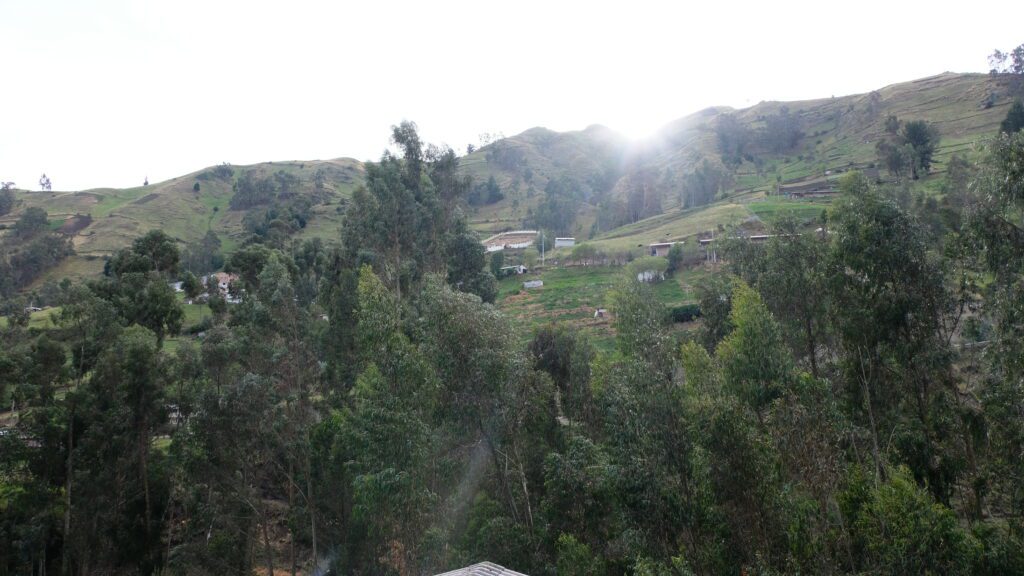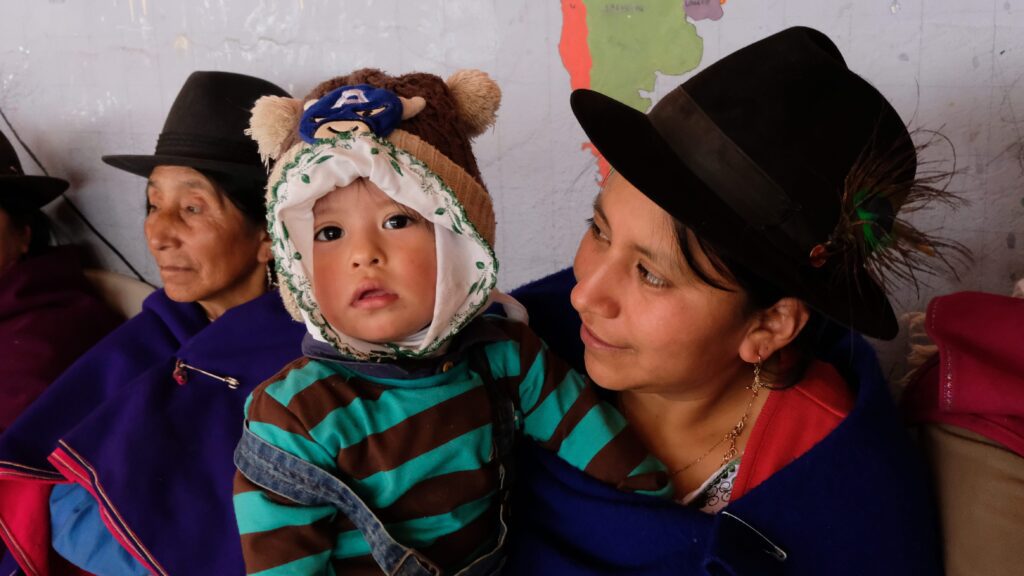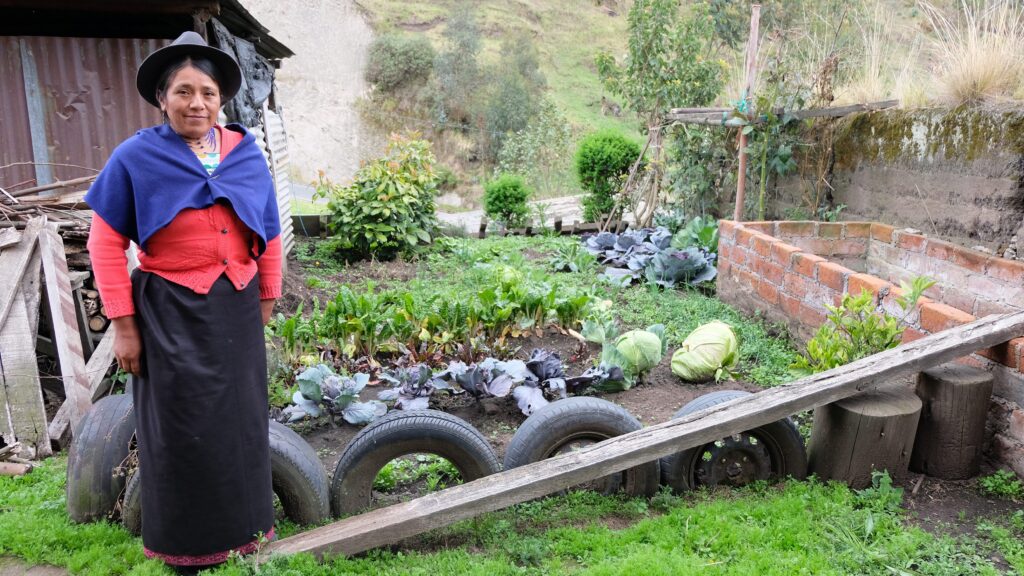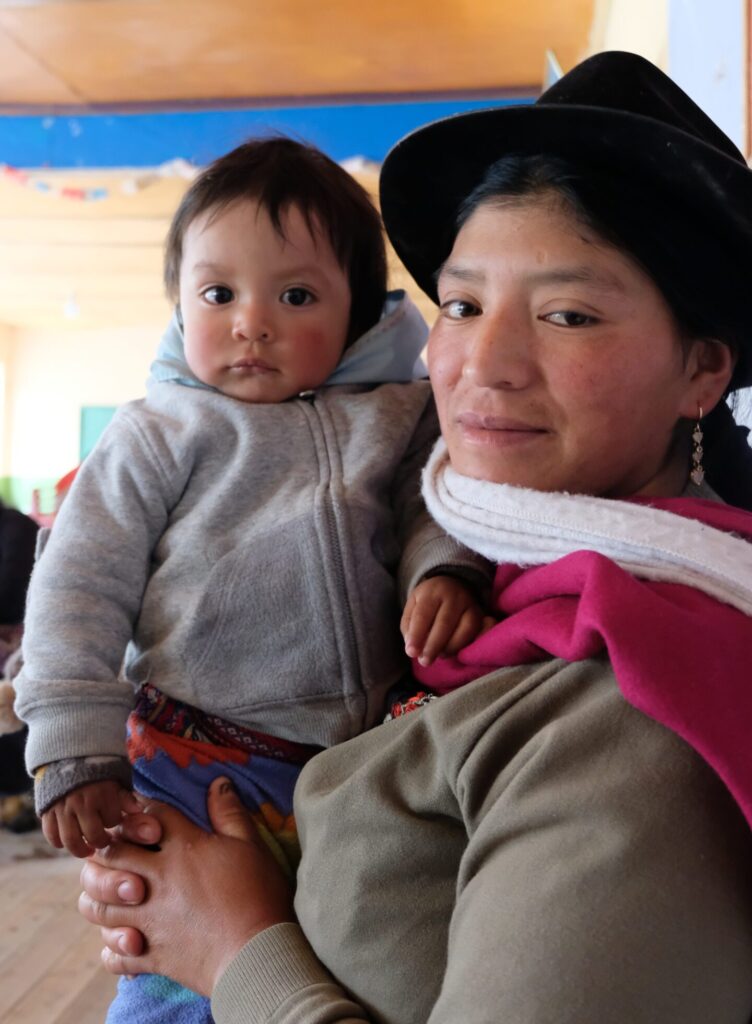Our Latin America programs officer, Normand Comte, and our communications and public relations advisor, Romina Acosta Bimbrera, were in Ecuador at the end of November to visit communities and observe the work of our local partner, CEDIS.
By Romina Acosta Bimbrera, Communications and Public Relations Advisor


This is the story of the community of Columbe in Ecuador’s Chimborazo province, where the Centro de Desarrollo, Difusión e Investigación Social (CEDIS, Centre for Development, Dissemination and Social Research), our local partner of almost 25 years, is carrying out several projects.
One of these projects began during the COVID-19 pandemic. It has since evolved to better meet local people’s needs. The project has introduced new components to combat child malnutrition, a problem increasingly observed in recent years. At the start of the pandemic, seeds were distributed to strengthen people’s resilience and to enable families to grow their own vegetables. Shortly thereafter, workshops were held in the community to analyze the impact of junk food like sweets and sodas. Next, a number of discussions were held to arrive at healthy and nutritious recipes, focusing on the diets not only of children and young people, but also of adults, among whom several cases of diabetes have been identified.
Child malnutrition, a growing problem


Chimborazo province has one of Ecuador’s highest child malnutrition rates. According to a study done in partnership with the Catholic Pontifical University of Ecuador, around 40 per cent of wawas (children, in Kichwa) have malnutrition problems, judging by height and weight. CEDIS rapidly mobilized to raise awareness of the consequences of malnutrition through several community meetings.
Not content with simply meeting people, they also organized a series of workshops on complementary feeding. At these workshops, led by nutritionist Nataly, participants share their experiences, cook together and sample new recipes, all to the end of learning the benefits of eating differently. For instance, the develop special recipes to demonstrate that salt- and sugar-free dishes, too. can be tasty! Thus, children are taught good eating habits from an early age.
Following these activities, an easy and accessible menu, tailored to the Andean diet and available home-grown vegetables, was developed and distributed to the community. Videos were also recorded to show how to prepare food as a family and how to adapt it according to age.
Women as influential leaders in changing the way we eat
In the small community of Columbe, a group of 35 women, 18 of whom have children under 5, meet frequently to discuss topics such as food; the role of women in society; and how women can become leaders.


Maria Juana Zepeda is one of the trainers and community leaders. She is warmly called hermana Juanita (Sister Juanita).
“I want to thank Development and Peace ― Caritas Canada and CEDIS. Thanks to them, I am no longer afraid of anything! Earlier, we women were always at home and silent. But I’ve had a lot of training and now I can speak in public,”
she said proudly. In her experience, young people need to be encouraged to have confidence in themselves. That is why she has invited several other women to join the groups organized by CEDIS.


Elsa Veronica Tibú, a 27-year-old mother of a 17-month-old child is a participants in one of the training sessions and a guest of “Sister Juanita.” She appreciates the workshops, because she thinks it is very important to know what and what not to feed children so that they can grow up better.
Ana Beatriz Perez Villa, 34, is the mother of three children, including a baby under the age of two. She frequently participates in the training sessions and now herself helps raise awareness among mothers of the importance of complementary nutrition for healthy child development.
Even though turnout at the workshops is good, the CEDIS team is not resting its laurels continues working with Indigenous communities. They are now preparing a Sugar- and soda-free Christmas campaign.
Around the world, Development and Peace ― Caritas Canada’s partners are working hard to transform the world, one encounter at a time. In this season of hope and solidarity, give generously so they can continue their outreach work in faraway communities.

